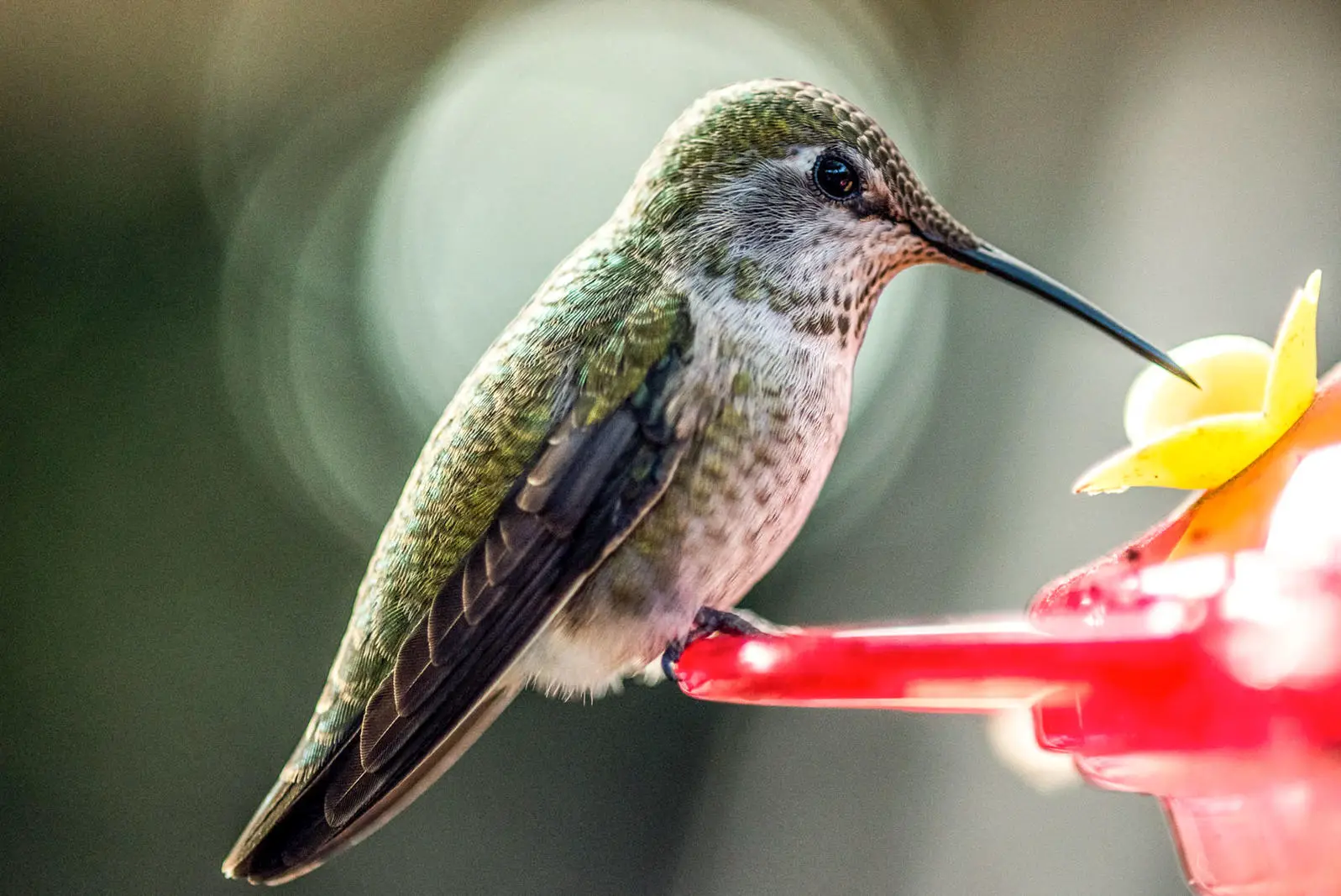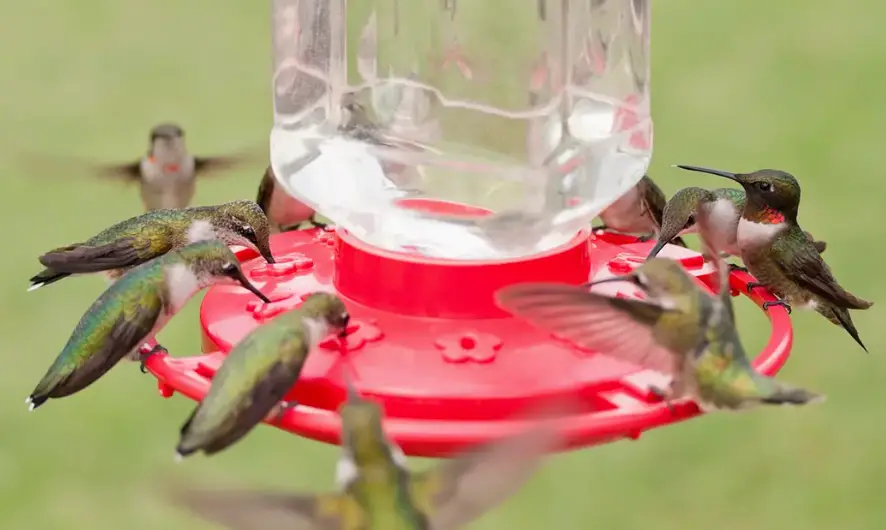
Photo via the National Audobon Society.
As far as birds in North America go, there are few more beloved than hummingbirds, whose wings flap at up to 90 beats per second according to the National Audobon Society.
But despite their small size, hummingbirds need to eat a lot to keep up all that activity, as they spend their days feeding every 10-15 minutes by consuming half their body weight in bugs and nectar and visiting between 1,000 to 2,000 flowers per day, the Society said on its blog.
In order to share the most effective way to feed the tiny little dynamos known as hummingbirds, the Society also shared its recipe for a simple food formula for hummingbird feeders, which was designed to mimic the natural structure of the plant-based nectar that has sustained hummingbirds for generations.
As a side note, the group that there are concerns with another widely used type of hummingbird feed that may be helpful to humans, but potentially damaging to the health of the tiny, delicate little birds that are the delight of bird watchers everywhere.
How to Make a Simple Hummingbird Nectar

Photo via iStock
The recipe for a simple hummingbird nectar to add to your hummingbird feeder is as follows.
You’ll need the following two ingredients to make it at home:
-1/4 cup refined white sugar, preferably organic (get a five pound bag for less than 20 bucks here)
-1 cup boiling water (preferably filtered water)
-1 regular-sized bowl
-Spoon
Directions for making the hummingbird nectar:
- Mix the sugar and boiling water until the sugar is dissolved
- Cool and fill the feeder
- Hang up your feeder outside and wait for the hummingbirds to come
That’s it!
This particular mixture mimics nectar quite well because plain white table sugar (organic is recommended according to the Society) very closely mimics the composition of natural plant nectar when mixed with water.
It should also be duly noted that feeding hummingbirds honey is not recommended by the group, since it may be capable of causing fungal infections within the hummingbird’s tiny little bodies.
According to the Old Farmer’s Almanac, hummingbirds are naturally attracted to places that include lots of flowers, as well as a habitat that will give them enough shade, shelter, water and security.
Avoid GMOs, Artificial Dyes in Hummingbird Feed at All Costs

Some instant hummingbird nectar mixes, like this one, contain preservatives like sodium benzoate, artificial food dyes, and other ingredients that may be toxic.
Elaine McFadden, a registered dietitian who holds a Master’s in Public Health and hosts the Radio Program Smart Health Talk, states on her website that it’s especially important to avoid hummingbird feed that includes artificial colors like red dyes, pesticides like glyphosate, and GMOs.
She also cautions bird lovers to check their feeders for mold often for mold, which can kill hummingbirds as well. Providing the delicate little birds with healthy food and a mold-free environment are important for them to survive and thrive during the hot summer months.
“Eating mold can kill hummingbirds,” she says on her website.
“Especially during the warmer months when mold can multiply quickly. The mold can even live in small holes in the plastic so you may have to sanitize the feeder.”
Thanks for reading! For the latest updates from AltHealthWorks.com, be sure to give us a “Like” on our Facebook page here.
Thanks for installing the Bottom of every post plugin by Corey Salzano. Contact me if you need custom WordPress plugins or website design.




